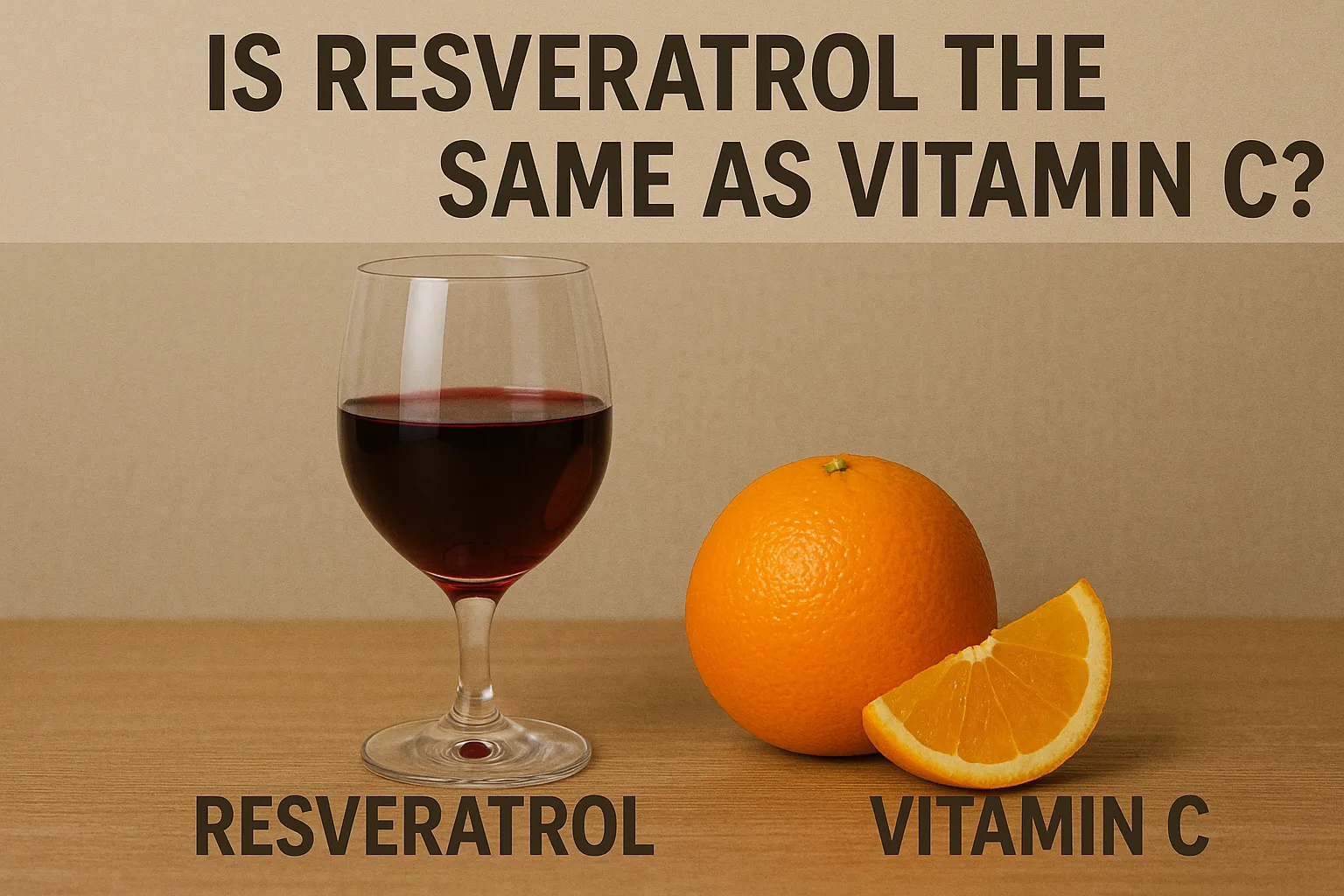Is resveratrol the same as vitamin C?
While both resveratrol and vitamin C are powerful antioxidants, they are not the same compound and serve different functions in the body. Understanding their unique benefits can help you make informed choices about your health supplements.
What is Resveratrol?
Resveratrol is a polyphenolic compound found in red grapes, berries, and peanuts. It is best known for its anti-aging and cardiovascular protective effects. Resveratrol works at a cellular level to reduce inflammation and oxidative stress.
What is Vitamin C?
Vitamin C, or ascorbic acid, is an essential nutrient found in citrus fruits, strawberries, and vegetables. It plays a vital role in immune function, collagen synthesis, and the prevention of cell damage from free radicals.
Key Differences
- 🧪 Chemical Nature: Resveratrol is a polyphenol; vitamin C is a water-soluble vitamin.
- 🫀 Health Focus: Resveratrol supports heart health and anti-aging; vitamin C supports immune defense and collagen formation.
- 🌱 Sources: Resveratrol is mainly in grapes and red wine; vitamin C is in citrus and leafy greens.
- 💊 Supplement Use: Both are available as dietary supplements but have distinct roles.
Frequently Asked Questions (FAQ)
Yes, they can be safely taken together. In fact, combining both antioxidants may enhance their protective benefits against cellular aging and oxidative stress.
Vitamin C is directly involved in immune cell function and is more essential for immune defense. Resveratrol has anti-inflammatory properties but is not a core immune nutrient.
Red wine contains resveratrol in small amounts but not vitamin C. Vitamin C is water-soluble and is not found in alcoholic beverages like wine.
Vitamin C supports collagen production and brightens skin tone, making it a skincare staple. Resveratrol protects the skin from environmental damage and aging.
Both are generally well tolerated. High doses of vitamin C may cause stomach upset, and resveratrol may interact with blood thinners. Consult a healthcare provider before use.

